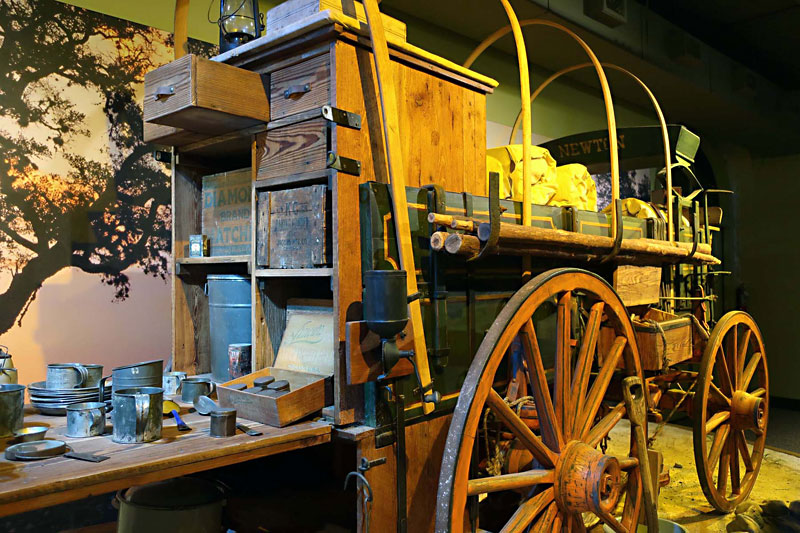
The Chisholm Trail Museum stands as a vital link to one of the most transformative chapters in American history, preserving the rich heritage of the cattle drives and the cowboy culture that defined the Old West. Situated in Kingfisher, Oklahoma, the museum is dedicated to keeping the spirit and story of the Chisholm Trail alive for future generations museum tickets. Through its meticulously curated exhibits, authentic artifacts, and engaging educational programs, the museum offers visitors a unique opportunity to step back in time and experience the struggles, triumphs, and adventures that occurred along this iconic trail. By preserving and interpreting the past, the Chisholm Trail Museum plays an essential role in ensuring that the history of the American West continues to inspire and educate.
One of the museum’s most impressive features is its extensive collection of artifacts that bring the Chisholm Trail era vividly to life. Visitors can marvel at items like cowboy saddles, spurs, branding irons, and the weapons used during the cattle drives. Each artifact tells a story, whether it’s a well-worn saddle that once carried a cowboy through rough terrain or a revolver used to protect herds from rustlers. The museum also displays Native American artifacts, highlighting the complex interactions between cowboys and the indigenous peoples whose lands were traversed by the trail. These items offer a tangible connection to the past, allowing visitors to better understand the day-to-day experiences of those who lived and worked on the trail. By preserving these relics, the Chisholm Trail Museum ensures that the history of the trail remains accessible and relatable to people of all ages.
In addition to its impressive artifact collection, the museum features immersive exhibits that capture the essence of life on the Chisholm Trail. One of the most popular attractions is the full-scale replica of a frontier town, complete with a blacksmith’s shop, a general store, and a schoolhouse. Walking through these life-sized recreations, visitors can get a sense of what it was like to live in a cattle town during the late 1800s. The museum also hosts exhibits that explore the role of cowboys, ranchers, and trail bosses, shedding light on the logistics of cattle drives and the social dynamics of the time. Through these detailed and interactive displays, the Chisholm Trail Museum offers a multidimensional understanding of the era, making history engaging and memorable for all who visit.
The museum is also deeply committed to education and community outreach, offering a variety of programs designed to teach both children and adults about the history and legacy of the Chisholm Trail. School groups are a common sight at the museum, where students can participate in hands-on activities such as blacksmithing demonstrations, leatherworking, and historical reenactments. These educational experiences help bring history to life in a way that textbooks cannot, sparking curiosity and a sense of wonder about the past. Additionally, the museum hosts lectures, workshops, and living history events throughout the year, inviting historians, authors, and local experts to share their knowledge. By engaging with the community in these ways, the Chisholm Trail Museum fosters a deeper appreciation for history and ensures that the stories of the Old West continue to resonate.
Preserving the history of the Chisholm Trail is not just about honoring the past; it’s also about acknowledging the diverse cultures and people who contributed to the trail’s legacy. The museum makes a concerted effort to present a balanced and inclusive history, recognizing the roles played by Native Americans, African american cowboys, Mexican vaqueros, and women in the cattle-driving era. Exhibits highlight the often-overlooked contributions of these groups, emphasizing their skills, resilience, and influence on cowboy culture. By telling a more complete story, the museum helps to challenge stereotypes and broaden visitors’ understanding of the diverse and interconnected histories of the American West. This commitment to inclusivity ensures that the Chisholm Trail Museum remains relevant and meaningful in today’s world, as it honors all the voices that helped shape the trail’s history.
The Chisholm Trail Museum’s mission to keep history alive is rooted in a deep respect for the past and a desire to inspire future generations. As the legacy of the Chisholm Trail continues to captivate people’s imaginations, the museum stands as a guardian of this rich heritage, ensuring that the stories of courage, perseverance, and adventure are not forgotten. By preserving artifacts, creating immersive experiences, and offering educational programs, the museum provides a comprehensive and engaging exploration of the trail’s history. Visitors leave with a newfound appreciation for the sacrifices and achievements of the people who shaped the American West, and with a greater understanding of the cultural impact of the Chisholm Trail. In a world that is rapidly changing, the Chisholm Trail Museum serves as a reminder of the importance of preserving history and the enduring lessons it can teach us.
